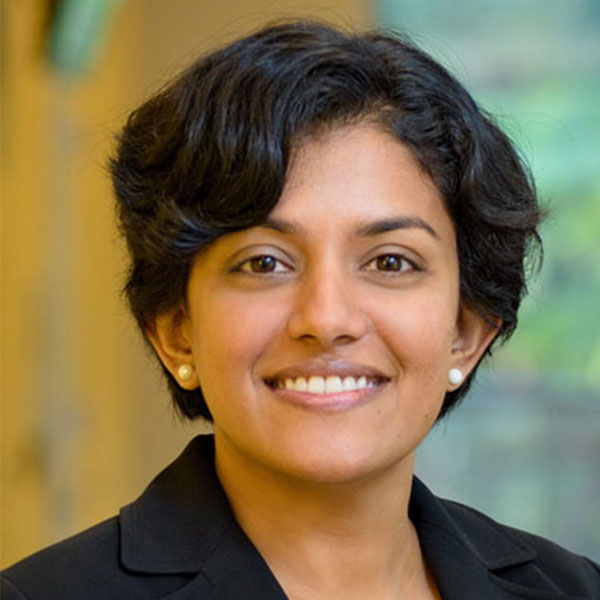The Jayaraman research group members’ expertise lies in the development of coarse-grained models and computational approaches involving liquid state theory, molecular simulation, and machine learning for designing and characterizing macromolecular materials. Prof. Jayaraman will share results from one specific project to highlight how her group uses these computational methods in combination with experiments from their collaborators.

She will also introduce in this talk a method they recently developed called ‘Computational Reverse Engineering of Scattering Experiments (CREASE)’ that is useful for analysis of small angle scattering profiles and interpretation of the assembled structure in macromolecular solutions. CREASE is comprised of two steps: the first step involves a genetic algorithm (GA) to determine the shape and dimensions of the domains in the assembled structure and the second step uses molecular simulations to reconstruct chain conformations and monomer level arrangements within the assembled structure.
Prof. Jayaraman validates the GA step within CREASE by taking input scattering intensity profiles from a variety of assembled shapes with known shapes and dimensions, and by producing outputs that match those known shapes and target dimensions. Besides applying CREASE to scattering data where the shape is known, she will demonstrate how CREASE would be applied to experimental scattering profiles and realistic situations where microscopy may hint at the potential shapes without the user knowing the dimensions with certainty, to test hypotheses on the shape and calculate the resulting dimensions for that shape. CREASE’s power lies in its ability to interpret structural detail at a range of length scales for macromolecular solutions without relying on fitting with off-the-shelf analytical models that may be too approximate for novel polymers and/or unconventional assembled structures.
Arthi Jayaraman is Centennial Term Professor for Excellence in Research and Education in the Departments of Chemical and Biomolecular Engineering and Materials Science and Engineering at the University of Delaware (UD), Newark.
She also serves as editor for both American Chemical Society (ACS) journals Macromolecules and ACS Polymers Au (gold).
Jayaraman received her Ph.D. in Chemical Engineering from North Carolina State University and conducted her postdoctoral research in Materials Science and Engineering at the University of Illinois-Urbana Champaign. After holding the position of patten assistant professor in the Department of Chemical and Biological Engineering at the University of Colorado (CU) at Boulder, in 2014 she joined the faculty at UD.
Jayaraman’s research expertise is in the development of molecular modeling, theory, and simulation techniques and application of these techniques to study polymer nanocomposites, blends, and solutions, and biomaterials. She has received the following honors: AIChE COMSEF Impact Award (2021), American Physical Society (APS) Fellowship (2020), Dudley Saville Lectureship at Princeton University (2016), ACS PMSE Young Investigator (2014), AIChE COMSEF division Young Investigator Award (2013), CU Provost Faculty Achievement Award (2013), Department of Energy (DOE) Early Career Research Award (2010), and CU Department of Chemical and Biological Engineering’s outstanding undergraduate teaching award (2011) and graduate teaching award (2014).
Contact the ND CBE department for Zoom link.